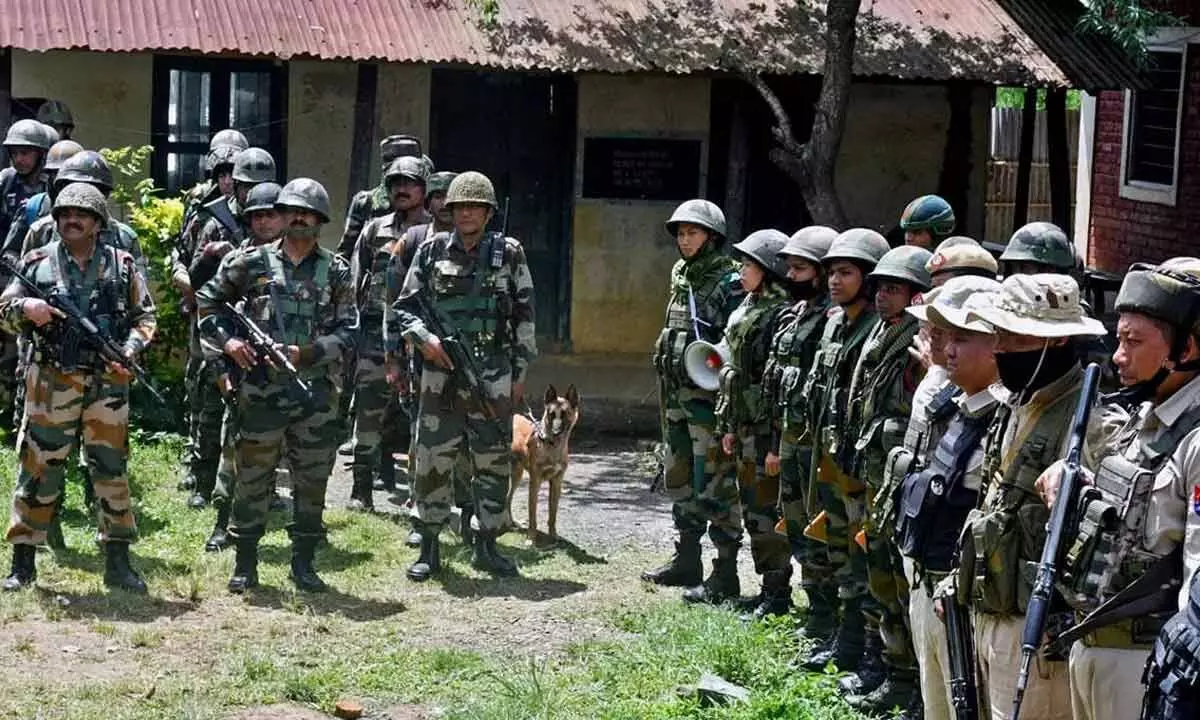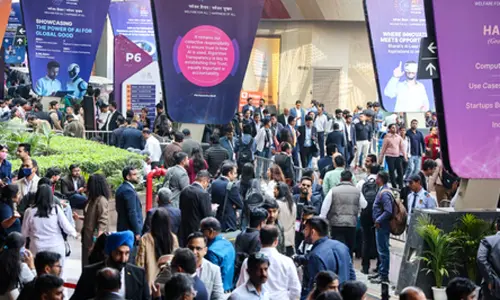Petty politics preclude peace in Manipur

Petty politics preclude peace in Manipur
“Be it the loftiest goal, be it the toughest challenge, the collective might of the people of India, the collective power provides a solution to every challenge,” Modi said in the aftermath of Biparjoy cyclone which left a trail of destruction along Gujarat coast.
“Be it the loftiest goal, be it the toughest challenge, the collective might of the people of India, the collective power provides a solution to every challenge,” Modi said in the aftermath of Biparjoy cyclone which left a trail of destruction along Gujarat coast. While damage to properties could not be prevented, loss of lives was averted by taking all precautionary and rescue measures in time. However, another disaster, a man-made one that erupted in Manipur, is yet to be contained. Violence continues to flare up and precious lives are being lost besides devastating impact on habitations and people’s properties.
The Congress on Sunday questioned the silence of Prime Minister Narendra Modi on the raging violence. The grand old party’s chief Mallikarjun Kharge had a dig at the Modi government, saying it is “asleep at the wheel while Manipur burns.”
Ethnic violence in Manipur broke out between the people of Meitei and Kuki communities a month ago. More than a hundred people have lost their lives and, hence, the Mann ki Baat should have first addressed, contended the GOP. But its assertion that the government was sleeping while Manipur was burning was wrong and not expected from a party which ruled the country for a major part of 75 years. Violence is there, but it is limited in two or three places such as Churachandpur and Imphal.
The most unfortunate situation in the country is that the political parties are more interested in taking jibes at one another and fanning trouble, rather than come forward with a workable solution. One wonders whether they know what the real cause of this outbreak of violence is. Those seeking ST status say it is not only about reservation benefits but also about protection of their land. This north eastern state is roughly divided into two regions — a central, fertile riverine valley constituting less than 10 per cent of the state’s land area, and the surrounding hills which account for the remaining 90 per cent.
History says that the British in 1891 separated revenue plains from revenue hills. This was done on the pattern of the revenue administration mechanism they introduced in Assam through the Bengal Eastern Frontier Regulation, 1873.
Hence, the Meiteis, who account for about 52 per cent of the state’s population, came to be restricted within the small valley where they have to follow the modern land revenue administration while the hills reserved for the Nagas and Kukis, remain sparsely populated and they need not pay any taxes including income tax.
In modern times, the Meiteis have come to be gripped by a peculiar sense of siege, especially because of layered relations with the hill tribes, which on one hand are marked by fraternal feelings and on the other by deep mistrust. They feel that they are being marginalised in terms of land and jobs and hence the demand for ST status. But the Kukis feel that this would adversely affect their share of reservations. No one is trying to explain to them that this is not true.
The proposal of ST status to Meiteis is not new. It was kept in cold storage for over a decade by successive governments. Those demanding ST status eventually petitioned the Manipur High Court. On April 19, the court directed the state to do the needful and forward its recommendation to the Union government. The tribal groups started protests.
On March 10, the state Cabinet took the decision to pull out of a tripartite Suspension of Operations (SOO) agreement with two Kuki militant groups, the Kuki National Army and the Zomi Revolutionary Army, from among the 24 who had signed this agreement, again implying that they were party to encroachments in forests for poppy plantations and that they were of foreign origin. The SOO pact being a tripartite truce also includes the Union government. This rash decision of the state cabinet hurt the Kukis.
It’s time the so-called intellectuals of the Congress party come out with a solution to the problem. They should realise that the country’s interests are important – not winning or losing elections.








